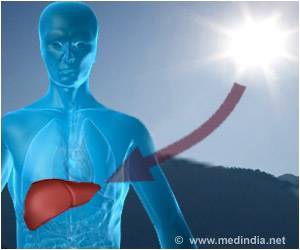
Can vitamin D deficiency cause high blood pressure?
Go to source).
Role of Vitamin D in Calcium Absorption
Vitamin D helps prevent bone thinning and has anti-inflammatory properties that protect against arthritis. Osteoporosis, characterized by weak and brittle bones, is often linked to insufficient Vitamin D levels. While many people focus on calcium supplements for bone health, they may overlook the vital role of Vitamin D in calcium absorption.‘Did You Know?
Women are more prone to Vitamin D deficiency, risking serious bone health issues. #healthawareness #medindia’





"We frequently see women with bone problems related to low Vitamin D levels. This nutrient is essential for calcium absorption, which strengthens bones. Unfortunately, many women do not get enough Vitamin D, increasing their risk of osteoporosis and fractures," said Akhilesh Yadav, Associate Director - Orthopaedics & Joint Replacement, Max Hospital, Vaishali.Women are more prone to Vitamin D deficiency, risking serious bone health issues. #healthawareness #medindia’
Vitamin D is necessary for bone development, repair, and muscular function. Women's Vitamin D deficiency can be attributed to factors such as aging, which reduces the skin's ability to synthesize Vitamin D, and insufficient sun exposure.
Impact of Deficiency of Vitamin D
"Maintaining adequate Vitamin D levels is crucial for optimal bone health, yet it remains a significant concern, especially among women. Post-menopausal women are at higher risk due to hormonal changes," stated Sagar Hingrajiya, Consultant Orthopaedic, Bhailal Amin General Hospital, Vadodara.Regular monitoring of Vitamin D levels is vital, particularly for women over 40 who are at increased risk of osteoporosis. Persistent low levels may require intervention with prescribed supplements. However, it is essential to seek professional advice before starting supplementation to avoid adverse effects.
To maintain adequate Vitamin D levels, experts recommend spending 10-30 minutes in midday sunlight several times a week through activities like brisk walking or gardening, balancing sun exposure with skin protection. Contrary to common belief, the best time for Vitamin D synthesis is between 10:00 a.m. and 3:00 p.m., rather than in the gentle morning or evening sunlight.
Advertisement
Reference:
- Can vitamin D deficiency cause high blood pressure? - (https://www.mayoclinic.org/diseases-conditions/high-blood-pressure/expert-answers/vitamin-d-deficiency/faq-20058280)















